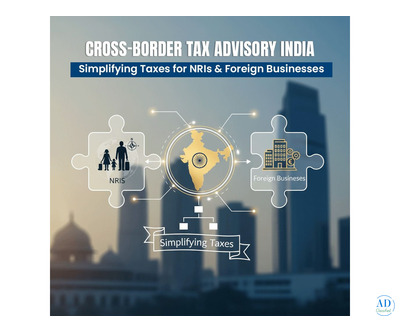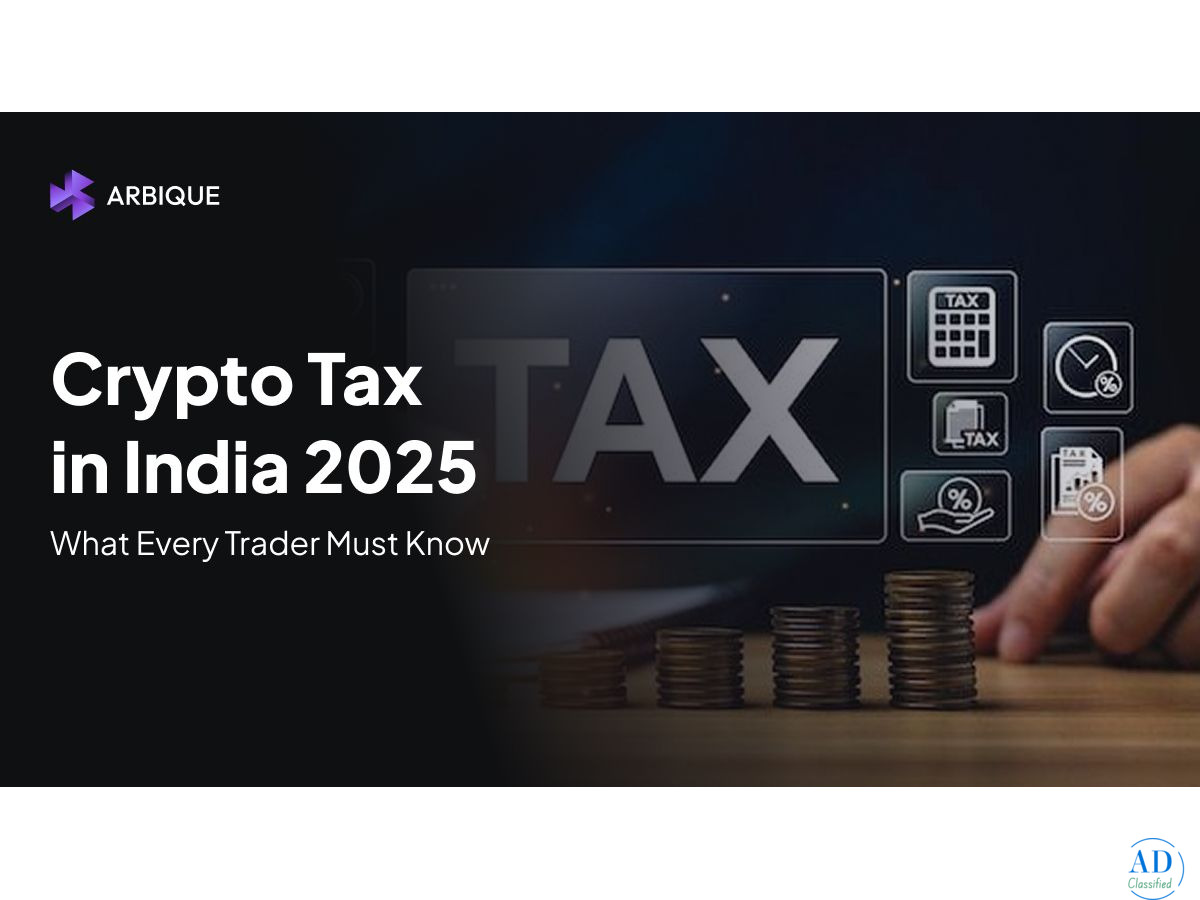Crypto arbitrage India tax by Arbique.com
1.00 ₹
Published date: 2025/09/25
- Location: South West Delhi, Delhi, Delhi, India
Name: Arbique.com
Phone: +9198913 6xxxx
How India’s Tax Rules Affect Crypto Traders
Introduction
India’s cryptocurrency market has seen exponential growth over the last few years. Millions of traders and investors are exploring digital assets, but the government’s tax regime has created a complex landscape. While crypto is not banned, the taxation structure in India is among the toughest worldwide.
For traders, this doesn’t just impact profits—it determines whether trading strategies like arbitrage, high-frequency trading, or AI-powered automation (such as Arbique) can remain viable.
In this blog, we’ll explore India’s crypto tax rules, their impact on traders, and how platforms like Arbique help navigate this challenging environment.
The Current Tax Regime for Crypto in India
1. Flat 30% Tax on Gains
All profits from trading, investing, or selling cryptocurrencies—legally defined as Virtual Digital Assets (VDAs)—are taxed at a flat 30% rate.
No benefit from lower income slabs.
No deductions allowed (except the cost of applies equally to short-term and long-term gains.
This significantly reduces net profitability for active traders and arbitrageurs.
2. 1% TDS on Every Transaction
Alongside the 30% tax, India mandates a 1% Tax Deducted at Source (TDS) on every crypto trade, regardless of profit or loss.
For frequent traders:
This locks up liquidity.
Capital efficiency drops.
A digital paper trail is created for each transaction.
3. No Loss Offsetting
Unlike other asset classes, losses in crypto cannot be set off against gains.
Example: If a trader loses ₹1 lakh in Bitcoin but gains ₹50,000 in Ethereum, they still owe tax on the ₹50,000 profit.
4. Reporting & Compliance
Every transaction must be declared in income tax filings.
Exchanges must register under FIU-IND and comply with PMLA KYC/AML rules.
This adds regulatory overhead for both platforms and traders.
Introduction
India’s cryptocurrency market has seen exponential growth over the last few years. Millions of traders and investors are exploring digital assets, but the government’s tax regime has created a complex landscape. While crypto is not banned, the taxation structure in India is among the toughest worldwide.
For traders, this doesn’t just impact profits—it determines whether trading strategies like arbitrage, high-frequency trading, or AI-powered automation (such as Arbique) can remain viable.
In this blog, we’ll explore India’s crypto tax rules, their impact on traders, and how platforms like Arbique help navigate this challenging environment.
The Current Tax Regime for Crypto in India
1. Flat 30% Tax on Gains
All profits from trading, investing, or selling cryptocurrencies—legally defined as Virtual Digital Assets (VDAs)—are taxed at a flat 30% rate.
No benefit from lower income slabs.
No deductions allowed (except the cost of applies equally to short-term and long-term gains.
This significantly reduces net profitability for active traders and arbitrageurs.
2. 1% TDS on Every Transaction
Alongside the 30% tax, India mandates a 1% Tax Deducted at Source (TDS) on every crypto trade, regardless of profit or loss.
For frequent traders:
This locks up liquidity.
Capital efficiency drops.
A digital paper trail is created for each transaction.
3. No Loss Offsetting
Unlike other asset classes, losses in crypto cannot be set off against gains.
Example: If a trader loses ₹1 lakh in Bitcoin but gains ₹50,000 in Ethereum, they still owe tax on the ₹50,000 profit.
4. Reporting & Compliance
Every transaction must be declared in income tax filings.
Exchanges must register under FIU-IND and comply with PMLA KYC/AML rules.
This adds regulatory overhead for both platforms and traders.
Related listings
 WeAlwin – Expert Developers for Crypto Arbitrage Bot DevelopmentFreeOther Services Madurai (Tamil Nadu) 2025/09/18WeAlwin is a trusted Crypto Arbitrage Bot Development company with skilled developers. Our bots support multiple exchanges and fast trading opportunities. We make sure your trades are secure and accurate every time. Let WeAlwin help you start automat...
WeAlwin – Expert Developers for Crypto Arbitrage Bot DevelopmentFreeOther Services Madurai (Tamil Nadu) 2025/09/18WeAlwin is a trusted Crypto Arbitrage Bot Development company with skilled developers. Our bots support multiple exchanges and fast trading opportunities. We make sure your trades are secure and accurate every time. Let WeAlwin help you start automat... Cross-Border Tax Advisory India – Simplifying Taxes for NRIs & Foreign BusinessesCheck with sellerMiscellaneous New Delhi (Delhi) 2025/09/17Ridhi Karan & Associates is your trusted partner for cross-border tax advisory in India, helping NRIs, expatriates, and global businesses navigate complex Indian tax laws with ease. As a leading Chartered Accountant for foreign clients in India,...
Cross-Border Tax Advisory India – Simplifying Taxes for NRIs & Foreign BusinessesCheck with sellerMiscellaneous New Delhi (Delhi) 2025/09/17Ridhi Karan & Associates is your trusted partner for cross-border tax advisory in India, helping NRIs, expatriates, and global businesses navigate complex Indian tax laws with ease. As a leading Chartered Accountant for foreign clients in India,...



